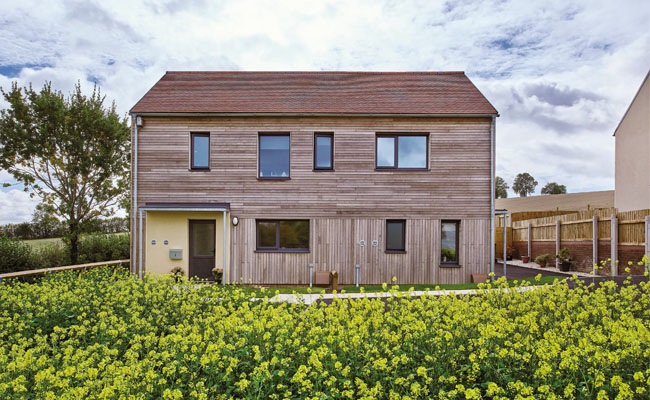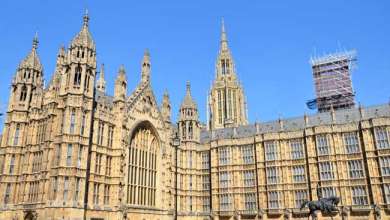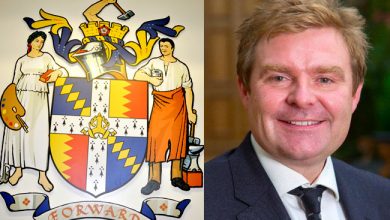Taskforce launched to drive construction of low carbon, energy efficient homes across the West Midlands

One of the energy efficient homes at the Architype’s Callaughtons Ash scheme for South Shropshire Housing Association. Image credit ©Richard Kieley 2018
A taskforce featuring some of the UK’s top property experts has been launched to help the West Midlands accelerate the construction of low carbon, energy efficient homes.
The Zero Carbon Homes Taskforce has been set up by the West Midlands Combined Authority (WMCA) to support the region’s fight against climate change, making sure all new homes meet tough zero carbon standards from 2025 onwards.
The taskforce, which is being chaired by the UK Green Building Council, will provide local and expert insight into how the region plans for a net zero future as it works towards achieving its ambitious target of being carbon neutral by 2041.
The move towards zero carbon homes will play a critical role in the region’s wider plans for a successful economic recovery from Covid-19 – one that makes the West Midlands a greener and healthier place to live and work.
WM2041: A Programme for Implementing an Environmental Recovery sets out a range of initiatives from small-scale through to potentially region-wide and complex schemes, including retrofitting old and cold homes to make them more energy efficient and accelerating the transition of the region’s automotive industry to electric vehicles.
The taskforce will meet regularly over the coming months to co-develop a charter and roadmap to help guide the move towards zero carbon homes in the region and build consensus across major public and private sector organisations.
Andy Street, the Mayor of the West Midlands and chair of the WMCA, said: “Housebuilding has been one of the West Midlands’ best success stories in recent years, with record numbers of homes being built and the vast majority of them on brownfield land.
“Now, not only must we look to continue that success in the wake of the coronavirus pandemic, but we must also think more about how housebuilding can help tackle the climate emergency we are facing and help the region reach its net-zero goal of 2041.
“This new taskforce will help do exactly that, building on work which is already underway to understand our existing performance and what more needs to be done.”
Julie Hirigoyen, chief executive of the UK Green Building Council, will chair the taskforce which includes representatives across the construction, finance, academia, innovation and energy sectors.
Commenting on the taskforce, she said: “We have secured a multi-disciplinary and highly experienced group of representatives from business, local government and academia, all of whom I am confident will play a critical role in ensuring that the WMCA adopts an ambitious and impactful approach to delivering zero carbon homes closely aligned with UKGBC’s own framework definition for net zero carbon buildings.
“The taskforce will inform the development of a charter and a roadmap for zero carbon homes that the WMCA has a direct stake in, but importantly it should also set an example for other local authorities in the region to follow. This is a unique opportunity to bring the public and private sectors together to build back better by delivering homes fit for the future.”
Cllr Mike Bird, WMCA portfolio holder for housing and land and leader of Walsall Council, added: “We know that the energy used by domestic homes is a major source of emissions so it’s crucial we move quickly to make our housing stock low carbon.
“Doing so will not only help tackle fuel poverty amongst our communities but also play a significant role in our fight against climate change. By developing new green construction technologies right here in the West Midlands we can help drive the industries of the future and create new jobs for local people.”
To help meet its target of being carbon neutral by 2041, the WMCA will enhance the performance of the existing building stock and improve the performance of new homes planned for the region.
The WMCA aims to make all new homes ‘zero carbon ready’ from 2025. This means that new built homes from 2025 onwards will be able to become ‘fully zero carbon’ as the electricity grid decarbonises, without the need for retrofitting and that they will produce 75-80% lower CO2 emissions compared to current levels.
Bringing technical expertise and market insight, taskforce members will raise the profile of this agenda in the West Midlands, offering insight into the future of construction and carbon reduction measures and advising on the direction of zero carbon development within the region and further afield.
The taskforce will play a key role in achieving the WMCA’s zero carbon ambitions through co-development of the implementation plan and future investment cases to government, directly supporting the delivery of zero carbon homes in the region.
The context behind the taskforce is uncertainty around the specifics of how national and local net-zero requirements will be applied.
The taskforce will look to clarify a new standard for the West Midlands, which goes above and beyond Building Regulations and keeps the region on track to meet net zero by 2041.
Alongside the aspiration to limit carbon production in new development, the taskforce will also identify opportunities to drive inclusive growth across the region through new development, for example, by lowering operational costs and enhancing local environments.
A recent example of the WMCA’s commitment to reducing the environmental impact of construction is the recent planning submission of the National Brownfield Institute in Wolverhampton.
The taskforce will add new requirements specific to low carbon development to the WMCA’s Single Commissioning Framework, which provides a single set of criteria applied to all housing projects seeking WMCA investment. This criteria includes inclusive growth outcomes such as affordable housing, the use of local labour and suppliers, modular construction and quality of placemaking.
The WMCA has an integrated approach for urban regeneration and ensures good design is embedded on all its projects through the WMCA design charter, which the new taskforce will build on.
Confirmed organisations represented as part of the taskforce include Lendlease, Urban Splash, NatWest, CITB, Architype, West Midlands Housing Association Partnership, Willmott Dixon, Citizen Housing, Energy Capital, Kingspan, Active Building Centre and Cundall. The expert members have been handpicked for their skill, experience and knowledge that each can bring to this critical work.





